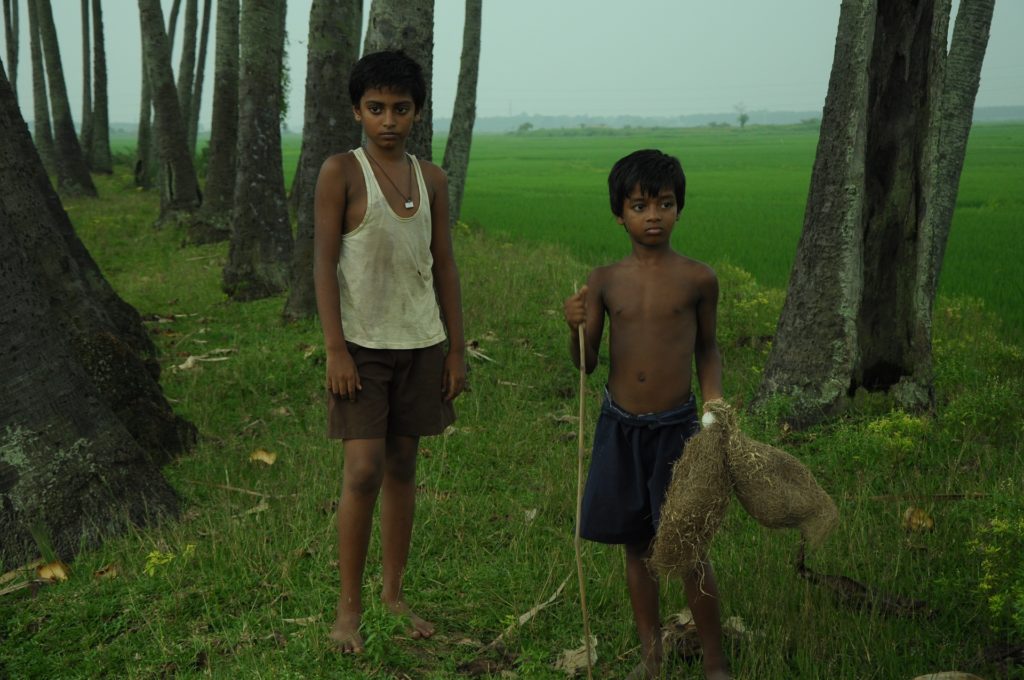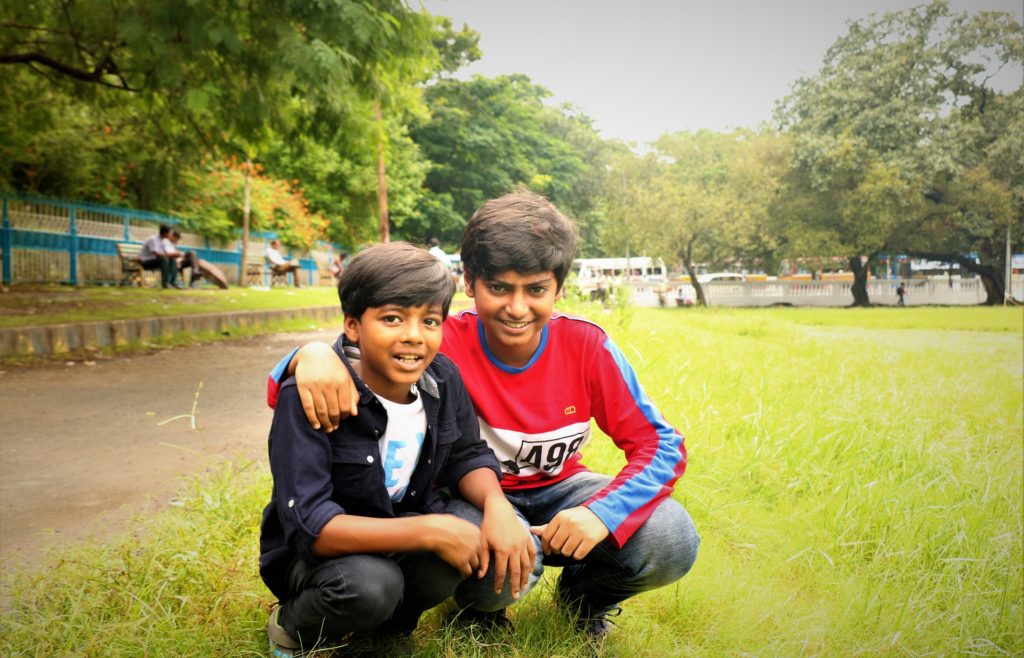Colours of Innocence
The triumph of Colours of Innocence, the debut film of Manas Mukul Pal was the unearthing of two child actors from the remotest of villages in the Indo-Bangladesh border and their surreal journey to the Rashtrapati Bhavan (Presidential House) to acknowledge the National Film Award (Rajat Kamal) in the best child actor category.
Manas Mukul Pal’s Sahaj Pather Gappo (the Bengali title) was based on Bibhutibhushan Bandyopadhyay’s short story called Talnabami. A resident of Barasat in the outskirts of the eastern metropolis Kolkata, Pal was more into acting than filmmaking and hardly did he imagine that his frivolous and agile efforts will turn into a conviction in the form of Nur Islam (10) and Samiul Alama (13) – the two protagonists of the film.
As the audience back home and abroad expressed an uncanny recollection with Satyajit Ray’s Pather Panchali, maybe more so as it comes from the same writer, the film actually takes the lesser trodden path to establish its unvanquished promise.
Media India Group was in a jovial conversation with the two prodigies of Indian cinema and what came out was a chronicle that painted a complex canvas in simple hues of innocence.
MIG: What was the first thing that came to your mind when you were informed of the National Award?
Samiul Alam: The first thing? The first thing I thought was, really, is it me who has already become an actor?
Nur Islam: I didn’t know what that award was, later Manas uncle explained me.
Alam: It was my first flight and I felt like flying; I had never seen so many people together. Reaching Delhi, I was taken to the hotel; it was a big hotel!
Nur: I was suffering from pox at that time, I couldn’t go to Delhi, I was sad. But my medal has just arrived and I am really happy now!
Alam: On the first day, I had to go to the Rashtrapati Bhavan alone; then Manas uncle came on the next day!
Manas selected the two kids from two different villages in the district of the North 24 Parganas and trained them for almost eight months in his own residence in Barasat. The rigorous workshop, the bonding with the kids and most importantly the gradually growing eagerness for art helped when they first faced the cameras.
MIG: Tell us your memories from the first day of shooting; you first dialogues?
Nur: There was a scene by a well where I and my brother would be cleaning the moss around the walls of the well. I saw huge cameras coming and going. I was a little nervous and curious as well. Is this called cinema?
Alam: Yes, by the sides of that dilapidated house. We were shooting in Bolpur and it was really fun!
Nur: My first dialogue was by the pond, I had to say, ‘E da, baba sotti sotti mojjabe naki?’(Brother, will our father really die?).
Alam: I reply, ‘Jan ne’ (I don’t know)!
MIG: What are your friends and teachers tell you in school nowadays?
Alam: My friends call me a hero in school. I escaped a thrashing from one of my teachers when all my friends told the teacher that I am acting in a film. One day, one of our teachers walked in and asked me to stand up. He is the one who jokes with me occasionally, but that day he was serious. He took out a paper and showed my picture in the newspaper to everyone in the class.
Nur: In my school, my English teacher told me that he will speak to the director of the film and arrange a screening of my film in the school. I am waiting for that day.
Alam: All my friends are yet to watch the film. The film did not go to the halls near our village. They ask me every day, when can they watch the film.
MIG: Have you read the actual story?
Alam: Yes, it’s called Talnabami, it was there in our class four book.
Nur: No, in class five book.
Alam: Yes, class five.
Nur: Whenever I read the story, I remember the film.
MIG: Which was the most difficult part of the film?
Nur: Crying during dubbing. I couldn’t cry but I had to.
Alam: There was a scene where my mother runs away to commit suicide on the railway tracks, that was the most difficult part – shooting as well as dubbing. I had to cry thrice or even more to get the perfection.
Nur: Manas uncle told me who I love the most? I said you, he said, imagine I am dead. I could cry in the next 10 seconds.
Alam: He was not stopping.
As the conversation probed more into their daily lives, their undemanding modes of happiness and their recent indulgences, Nur and Alam seemed like a metaphor of unrequited innocence in a time that is overpowered by artificial amusement.
The film is in its fifth week in Kolkata and the response is inspiring. While some of the multiplexes and single screens brought it down after the first couple of weeks, they are calling Sahaj Pather Gappo back. Manas said, “We tried to tell a simple story with a lot of honesty and that is finally paying off. I am happy that a number of people who refuted me, in the beginning, calling the film amateurish are now congratulating me for the fight.”
The kids have now grown up; when they started the film they were three years younger but now they are more mature as an actor than many in the tinsel towns of the country. “I was really surprised by the learning capacity of these two kids. They took instructions like a pro and were very smart on the sets, depicted almost all the emotions that I told them. The journey has been special and I am still not done with it,” added a buoyant director who has recently given the cinephiles of the country a reason to relive the charm and romance of the art and not just be reminiscent of the past.
Watch the trailer here…











